

During a social-needs screening, a social worker discovers that a patient, who will soon be discharged, has screened positive for food insecurity, meaning they struggle to afford or access enough nutritious food to sustain a healthy life. Rather than spending time calling individual community-based organizations (CBOs) to find help for the patient, the social worker simply posts a request on a website and not only finds an organization that can provide the food, but also a way to have it delivered directly to the patient’s home. Two clicks and the problem is solved.
Welcome to the “FAST” way of doing things.
Rising to Meet the Need
FAST (Food Access Support Technology) is a new platform created by Penn Medicine’s Center for Health Equity Advancement (CHEA) that connects health systems, food access CBOs and minority-owned small businesses to fight food insecurity. It grew from a CHEA initiative last spring that helped get food to vulnerable populations who couldn’t leave their homes during the COVID-19 pandemic while helping to keep people employed. Out-of-work catering employees — and their delivery vans — were paired with a CBO that had food available for people in need, but no way to deliver it quickly enough to keep up with requests. The initiative was supported, in part, by a Penn Medicine CAREs grant. The result: over 2,700 boxes of food delivered to vulnerable households, including the elderly and individuals with disabilities, in the first 15 weeks.
“We had an undeniable case that this was a need,” said Jaya Aysola, MD, MPH, executive director of CHEA and assistant dean of Inclusion and Diversity at the Perelman School of Medicine. “Food insecurity is the number one problem in social needs assessments and all health systems in the city are going to the same CBOs. There was a compelling case to coordinate these connections.”
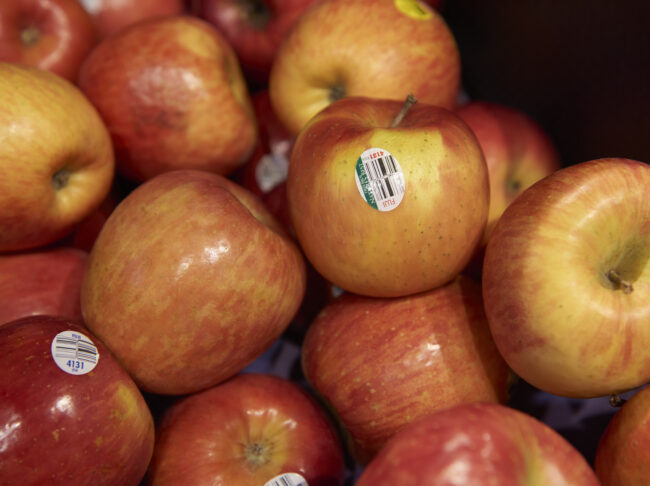
Today, over 300,000 Philadelphia residents are food insecure. In fact, according to data from Penn Medicine’s COVID-19 Social Needs Response Team, which was established to manage referrals for people who test positive for COVID-19 and requested additional resources, the primary concern for most callers was food insecurity. And its impact goes beyond not having enough food to eat. Indeed, food insecurity is associated with higher levels of chronic disease, including diabetes, coronary heart disease, stroke and cancer.
The amplified need in the face of the pandemic was further confirmed at monthly meetings of the Collaborative Opportunities to Advance Community Health (COACH) initiative, which brings together health systems and community and public health groups to address pressing community health needs, such as food insecurity. “CBOs were having a hard time delivering their food and there’s a huge gap between referral and meeting the patients’ needs,” Aysola said. “They told us, ‘We have boxes just sitting around. Do you have a resource?’”
The solution became clear: “What if we had a platform that allowed for real-time dialogue — matching needs with requests?”
Thanks to a generous contribution from the TD Charitable Foundation, CHEA was able to create the FAST platform and make these connections a reality. “The grant was about health systems leveraging connections with CBOs to improve the health of patients by addressing food insecurity; they wanted to fund health,” she said.
A Simple Approach
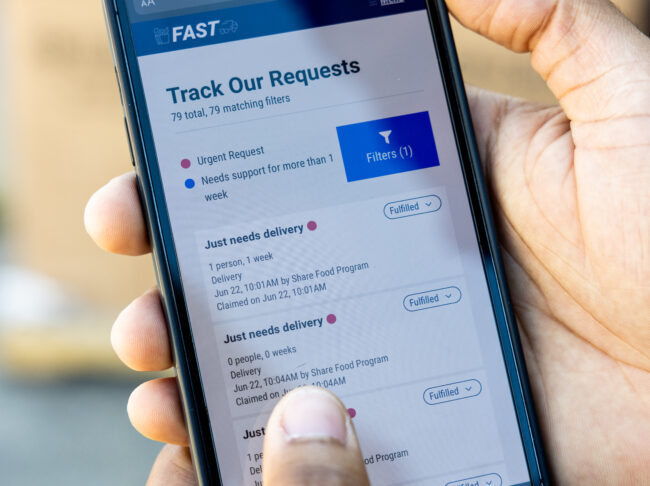
The FAST platform is easy to use. A member logs into the password-protected platform and posts a request — for instance, a health system posts a request for food for a patient. FAST will match this request with organizations that can meet their requirements (for example, maybe it needs to be low sodium). A CBO will claim it and the request is completed.
But some food banks have food but no way to deliver. “The CBO can repost on FAST, requesting delivery, and will be matched to a delivery partner,” said Ana Bonilla Martinez, CHES, CHEA program coordinator. Once the connections are made, organizations will receive an email or text notifications.
“What might have required four phone calls and half a dozen conversations over four weeks becomes a 24-hour process,” Aysola said.
FAST allows “a myriad of pathways and a myriad of means of coordinating,” Aysola said. Food banks who have boxes of food but don’t always have a way to deliver — or might only deliver to the elderly — can post just for delivery. Or a CBO, such as MANNA, receives a request for medically catered meals, but the patient doesn’t meet their criteria. They can post the request on FAST to see if another CBO can fill it. Other participating organizations include Share Food, Helping Hands for the Hungry, Greener Partners, People’s Emergency (PEC), MANNA, CHOP Farm to Families, Drueding Center, The Simple Way, Mitzvah Food Program, Bethel Presbyterian Church, and COACH.
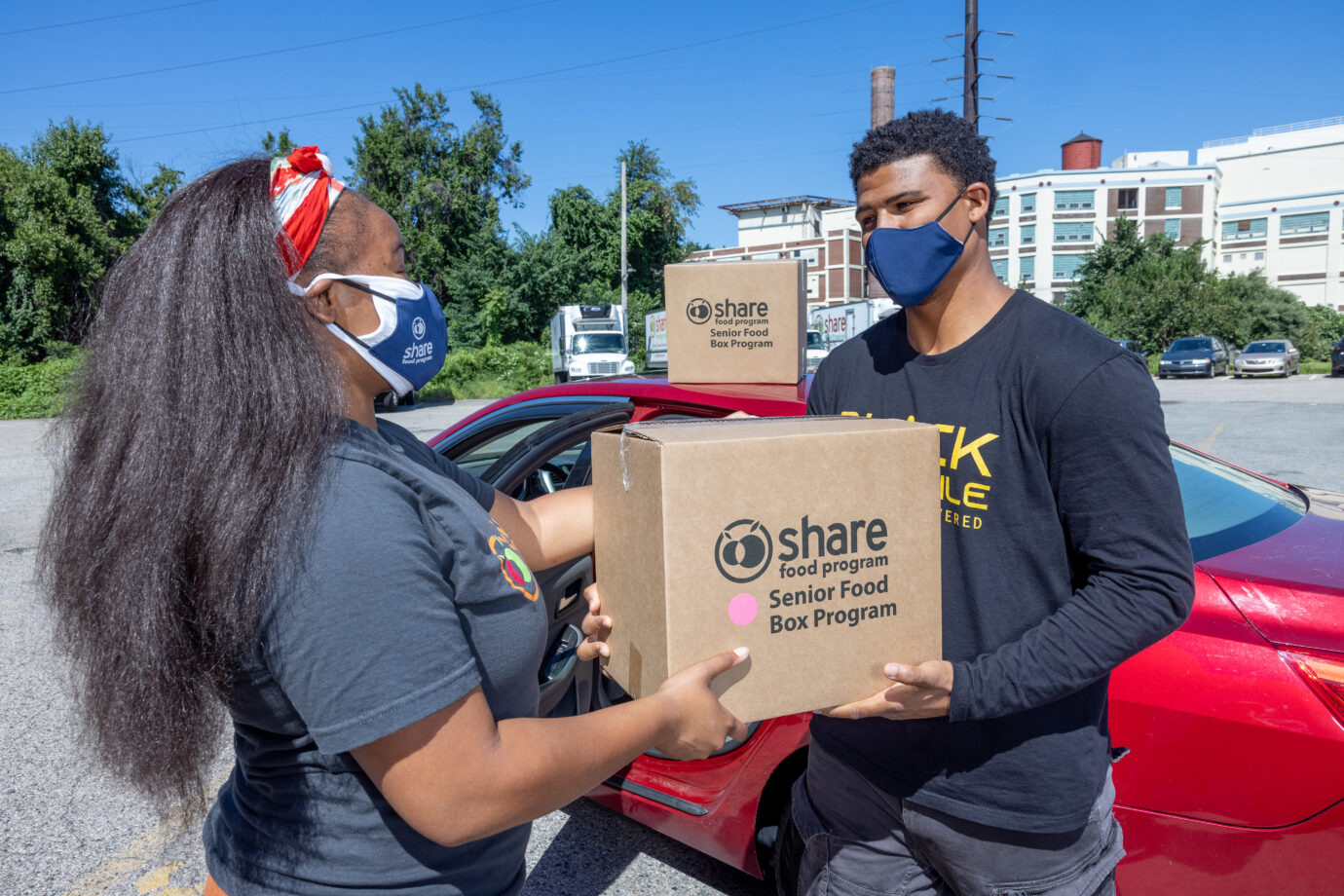
Onika Washington-Johnson hands a box of food to David Cabello, founder of Black and Mobile food delivery service, outside of Share Food Program’s facility.
Part of the TD grant is to reinvest in the community, specifically Black-owned small businesses. In trying to meet this requirement, Bonilla Martinez compiled a list of minority-owned small businesses in the area. Black and Mobile, a Black-owned food delivery service for Black-owned restaurants, rose to the top of the list. FAST now automatically sends all requests for delivery to Black and Mobile and they are completed within 24 hours of posting.
“We’re supporting a business that is investing in other small Black businesses,” Aysola said. “We’re excited about the partnership.”
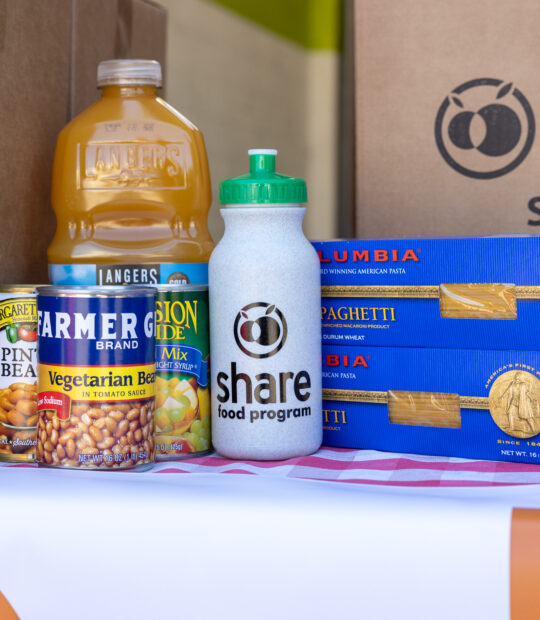
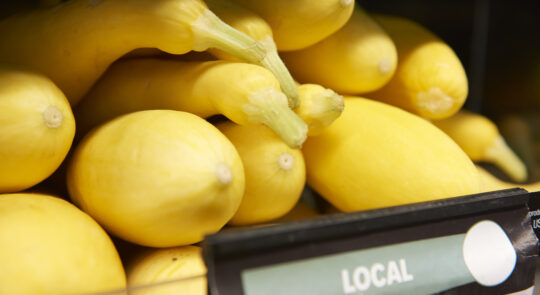
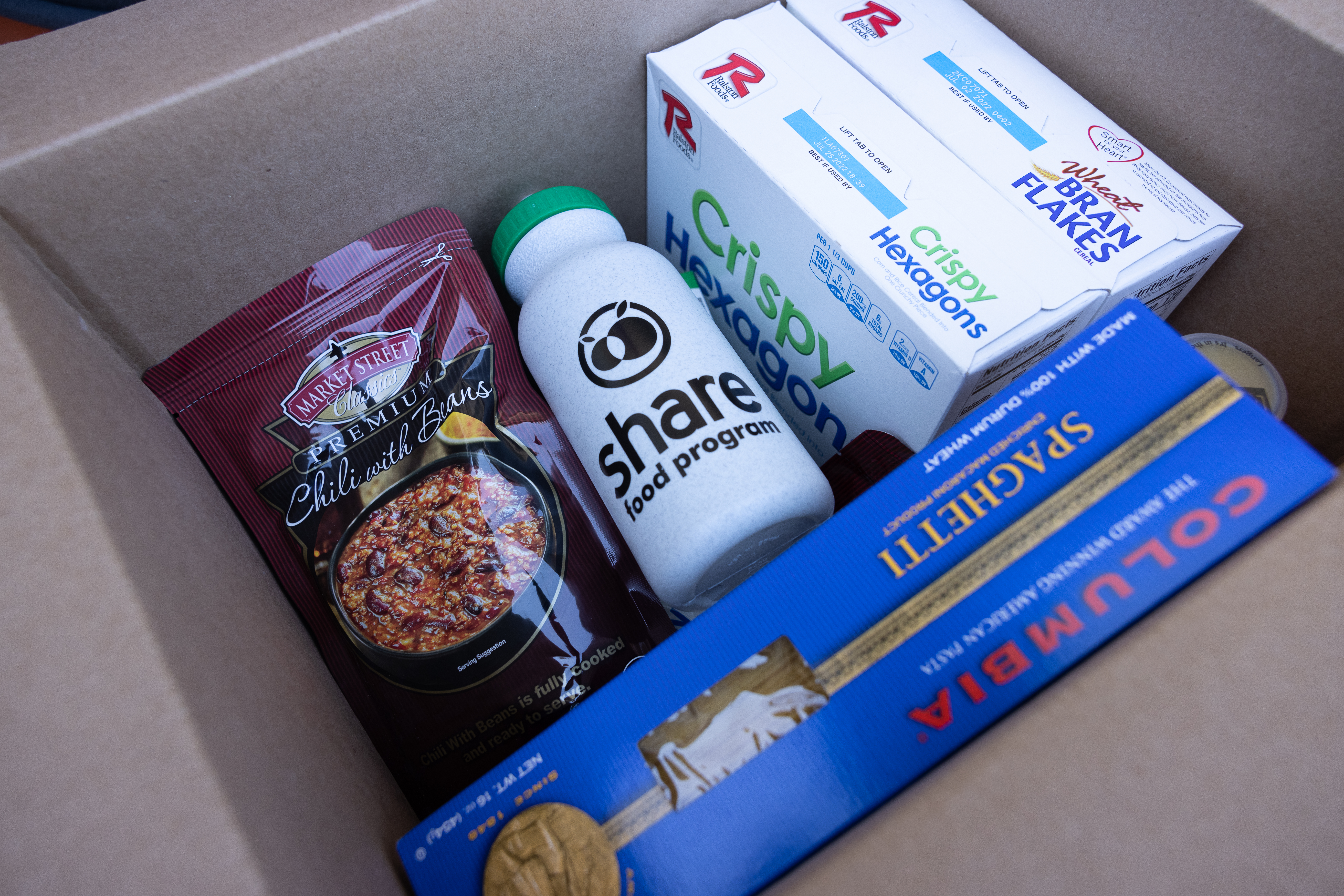
If a family required emergency food quickly but didn’t have the funds or means to pick up the food, a CHEA team member coordinated emergency food delivery to the family. Since December 2020, 27 households, encompassing 79 individuals, received emergency food deliveries while they were in the process of connecting with a local food bank.
“Our partnership has enabled food providers to expand their reach and to make sure food deliveries are not delayed or food is discarded because of the lack of volunteer drivers,” said David Cabello, founder and owner of Black and Mobile. “Supporting FAST with food deliveries, we are helping people in need because no one should go without food.”
FAST also captures data from a bird’s eye view of the city.
“Ask any social worker or CBO and they can anecdotally tell the needs but it’s only their slice of pie. But if everyone’s needs are on a shared platform, the gaps can be identified,” Bonilla Martinez said. “We can see all the requests — those that are fulfilled and those that aren’t. Data from FAST tells us where needs are clustered or what’s missing.”
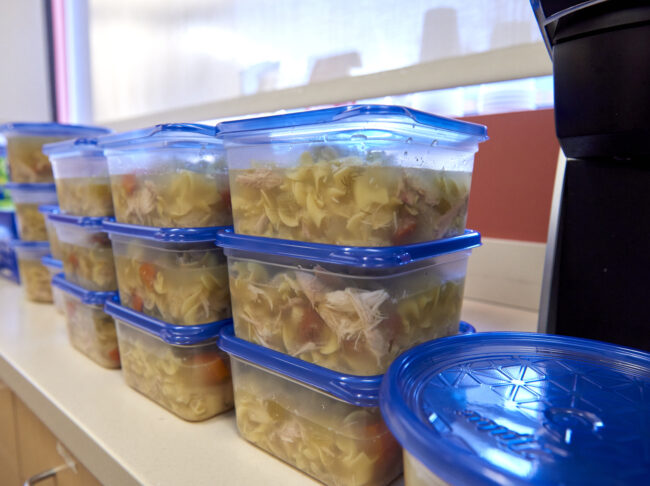
Closing Gaps
The CHEA team did a soft launch in May and have already discovered a food gap: a lack of prepared meals. Outside of MANNA — which prepares medically catered meals for specific needs — none of FAST’s CBOs offer prepared meals. The team is now seeking new partnerships to address these gaps.
Right now FAST is only offered to Penn Medicine and Jefferson Health System and 11 CBOs. Their plan is to eventually open to more health systems and CBOs in the city. “There’s broad interest from all the health systems in the downtown Philadelphia area, but we’re starting slowly. We need to make sure we can fill all the requests,” Bonilla Martinez said.
“Local health systems and food access organizations have been partnering on various efforts targeting food insecurity, but the FAST app represents an initiative that enables greater coordination and collaboration across a wide array of partners to improve food access,” said Susan Choi, PhD, of the Health Care Improvement Foundation, who facilitates the monthly COACH meetings.
Although the initiative is currently small, the impact can be felt. Since May, FAST has facilitated food access for 95 households. And the feedback they’ve received shows FAST’s true value.
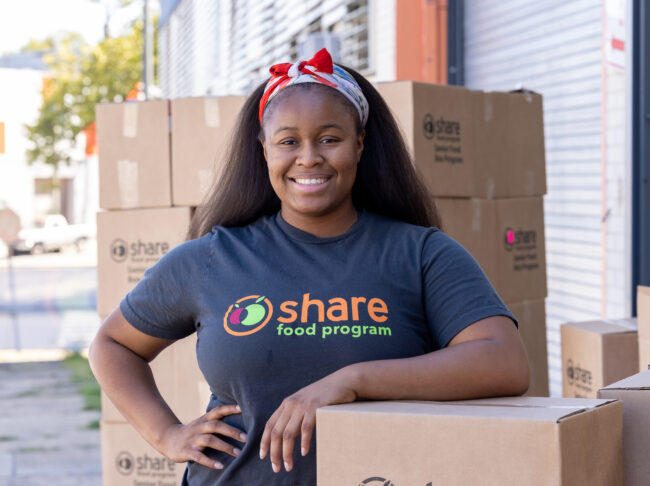
“The FAST App has been such an amazing resource for Share Food Program’s Home Delivery Program, which serves seniors and people with disabilities all over the Philadelphia region,” said Onika Washington-Johnson, volunteer manager for the Share Food Program. “Through the partnership with the FAST App and its partnership with Black & Mobile, we are able to get out food faster and more consistently than ever before.”








